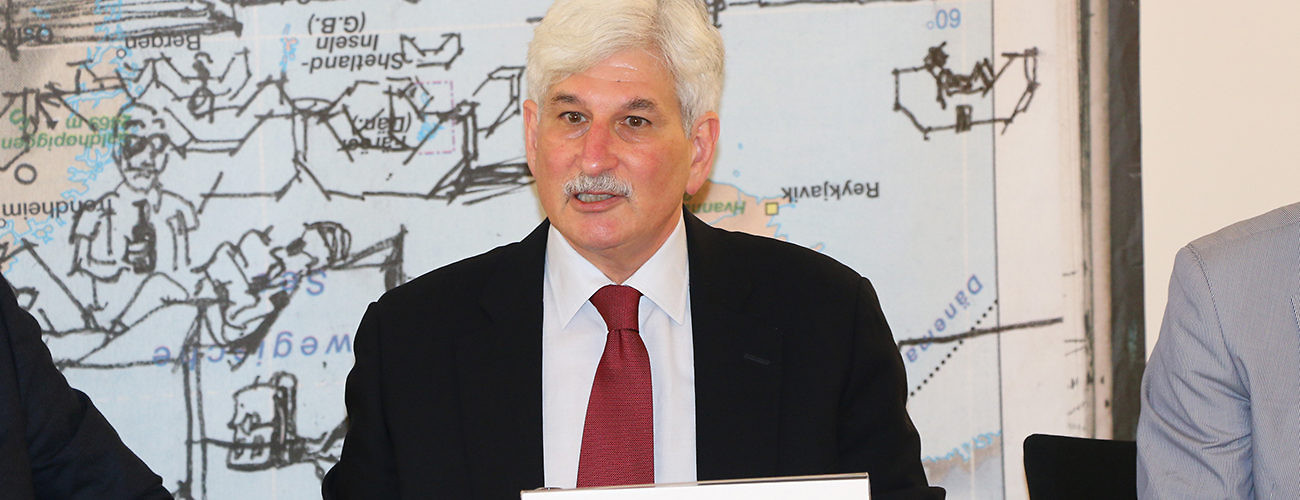On June 29, IPI launched a new book by Philip Remler entitled Chained to the Caucasus: Peacemaking in Karabakh. The book recounts twenty-five years of (mostly failed) diplomatic attempts to broker peace between Armenia and Azerbaijan over the contested region of Nagorno-Karabakh.
At a roundtable discussion at IPI’s Vienna office, Mr. Remler (a retired US diplomat who served with the State Department and the Organization for Security and Cooperation in Europe) described how leaders on both sides have pursued a policy of “total victory.” As a result, compromise is very difficult. Even when the presidents of the two countries have managed to come to agreement on key areas of a settlement, the promise of “total victory” makes compromise look like failure or betrayal. This has cost some Armenian politicians their jobs, and even their lives.
As a result, said Mr. Remler, the leaders of Armenia and Azerbaijan must believe that they personally will survive an agreement. This requires “political cover” from the international community. It also involves preparing the people for peace. As Mr. Remler writes, “for any peace deal to work, the parties’ leaders must be able to show suspicious populaces that the gains are worth the concessions.” There must be a credible peace dividend.
He recalled past attempts at peace, and noted that the building blocks of a settlement exist. However, he stressed that both parties share an expectation that peace is not likely in the near future, and adapt accordingly. With this perspective, politicians use negotiations as “an arena for scoring points, impressing patrons, and posturing to build a political career” rather than seeking peace.
Participants stressed the urgency for intensified mediation in the aftermath of a deadly flare-up in violence between Armenia and Azerbaijan in April this year–the worst violence since a cease-fire was declared in May 1994. They also discussed initiatives stemming from recent high-level meetings between Presidents Aliyev and Sagsyan in Vienna and St. Petersburg designed to de-escalate tensions along the Line of Contact, as well as the impact of these meetings on the negotiation process led by the co-chairs of the OSCE Minsk Group. Mention was also made of proposals to increase the number of international monitors.
The issue was also looked at in the context of wider geopolitical tensions and developments in the region. Among the discussants was Ambassador Herbert Salber, the European Union Special Representative for the South Caucasus and the crisis in Georgia, and Dennis Sammut, director of LINKS.








